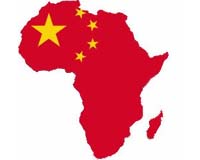 |
Cairo (UPI) Jul 10, 2009 In February 1991 Saddam Hussein put Kuwait's oil fields to the torch as his invading army was driven out of the emirate by U.S.-led forces. More than 700 wells were set ablaze in the worst attack on energy infrastructure since World II. That act of madness and revenge removed 2 million barrels of oil per day from global production. Eighteen years later the energy industry is under threat from global terrorism, with the focus largely on the Middle East and Africa. Consider the following catalog of recent attacks: -- Egypt announced Thursday that security forces have rounded up 26 suspected al-Qaida operatives on charges of plotting attacks on oil and gas pipelines as well as ships in the Suez Canal, a vital tanker route. -- In Yemen, security authorities are investigating militants believed to be linked to al-Qaida suspected of planning attacks on oil targets in southern Shabwa province after a July 2 attack blew up a pipeline, the latest of several attacks on oil centers. -- Since August 2008 a Turkish separatist movement, the Kurdistan Workers Party, or PKK, has sabotaged the 1,100-mile BP-run oil pipeline carrying Caspian Sea crude from Baku in Azerbaijan to Turkey's terminal on the Mediterranean at Ceyhan for Western markets. It also attacked the Kirkuk-Ceyhan pipelines that carry Iraq's vital oil exports and the Iran-Turkey natural gas pipeline in Agri province. -- In Nigeria's strife-torn southern oil fields, militants have hijacked a chemical tanker and attacked oil installations run by the Anglo-Dutch giant Shell and America's Chevron over the last week. This was part of a campaign launched in 2006 to force the central government to share its vast oil profits more equitably with the impoverished oil regions of the south. In recent months, the main militant group, the Movement for the Emancipation of the Niger Delta, has intensified its attacks. At the same time, banditry is rife and large amounts of oil are stolen every year, often by the tankerload. Crude production has tumbled from 2.6 million barrels a day in 2006 to 1.7 million today. Faced with the loss of about one-quarter of its daily oil production over the last three years, the government in Abuja has launched a major offensive seeking to crush the militants and the armed gangs plaguing the region. By all accounts, hundreds, possibly thousands, of civilians have perished in these operations centered on the area where Chevron operates. This has only made things worse. Indeed, the International Crisis Group, a Brussels-based think tank, warned in late April that the Niger Delta risks sliding deeper into conflict and criminality and spreading instability across the Gulf of Guinea. This is the world's new oil bonanza zone that embraces Nigeria, Equatorial Guinea, Gabon, Cameroon, Chad and the tiny island state of Sao Tome e Principe, and regional instability could jeopardize future oil supplies. The gulf is slated to become a key source of oil imports for the United States over the next decade as it weans itself off Middle Eastern oil. Al-Qaida has made several attempts to sabotage Saudi Arabia's key oil installations. Oil exports were never disrupted, but Osama bin Laden has made targeting oil centers a key element of al-Qaida's global strategy. In 2004 he called for an intensification of attacks on the energy infrastructure in Iraq and the Gulf. "Exhausting America in Iraq today economically and morally is a golden opportunity," he declared. "Do not miss that opportunity. One of the biggest reasons behind our enemies' domination over our countries is to steal our oil." With U.S. forces starting their withdrawal from Iraq, that country's oil industry, savaged since the U.S.-led invasion of 2003, could be vulnerable again. Iraq's economy depends on its oil exports. The Baghdad government wants the major international oil companies, booted out during nationalization in 1972, to return and invest $50 billion to restore the battered oil industry and develop untapped fields that could eventually surpass Saudi Arabia's energy wealth. So far, Big Oil has balked because the deals Iraq was offering were not sweet enough. But just as important to them is the security situation, which many fear will deteriorate as the Americans pull out. A renewed surge of attacks on Iraq's oil industry could wreck the chances of the Americans, British and others of getting their hands on Iraqi oil for the first time in 30 years -- and possibly spell doom for Iraq. The stakes are high all around. Share This Article With Planet Earth
Related Links Powering The World in the 21st Century at Energy-Daily.com
 China steps up buying spree in Africa
China steps up buying spree in AfricaLagos, Nigeria (UPI) Jul 9, 2009 China's oil companies, buoyed by the country's foreign exchange reserves that now top $2 trillion for the first time, are on another buying spree in Africa, further challenging the century-long domination of the continent's mineral wealth by Europe's great powers. So intense is Beijing's drive for wider access to energy resources to fuel China's economic growth that its main state-run ... read more |
|
| The content herein, unless otherwise known to be public domain, are Copyright 1995-2009 - SpaceDaily. AFP and UPI Wire Stories are copyright Agence France-Presse and United Press International. ESA Portal Reports are copyright European Space Agency. All NASA sourced material is public domain. Additional copyrights may apply in whole or part to other bona fide parties. Advertising does not imply endorsement,agreement or approval of any opinions, statements or information provided by SpaceDaily on any Web page published or hosted by SpaceDaily. Privacy Statement |